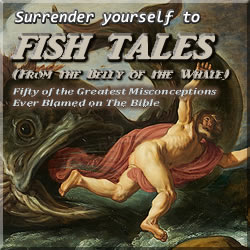The Seeds of Cynicism
Because Life is Full of Disappointments
Styles come, and styles go, but what never goes out of style is cynicism. When adversity strikes, do we embrace the challenge with dignity and grace? Do we rise to the occasion with steely resolve? Or do we instead criticize other people, the Universe, or God for ganging up on us? And why not? We’re only human, right? And if you’re human, then your life is full of disappointments; and wherever there are disappointments, Lord knows, cynicism is sure to follow.
Now understand, when I say cynicism, I’m not talking about its cousins—skepticism, pessimism, and nihilism. By definition, a skeptic doubts the authenticity of certain ideas that claim to be true, which still opens the door for a change of heart should evidence convince them otherwise. A pessimist sees the worst in everything, and goes through life without much hope, yet this still doesn’t rule out that they’ll make more calculated decisions, thus increasing the possibility for success in life. And the nihilist believes that life has no meaning or purpose, and so rejects such concepts as truth and morality. However, this personal sense of uncertainty and powerlessness doesn’t always lead to total negativity as one might expect but can motivate a person toward unexpected avenues of renewal and growth.
Story Continues Below
Says Richard Price—the founder and CEO of Academia.edu—on his podcast In Depth With Academia:
The Joy of Cynicism and the Death of Beauty: How Your Worldview Shapes the World You Live In is:
To hear Price’s book review of The Joy of Cynicism and the Death of Beauty, CLICK HERE.
To hear Kent talk about the little-known biblical prophecy, which speaks of the 5,500-year chronology from Adam to Christ, with Zen Garcia, the host of the Internet talk show Secrets Revealed, CLICK BELOW.
Story Continues From Above
Cynicism, by contrast, turns out to contain the seeds of a much more toxic sort than any of its cousins. That’s because while skepticism, pessimism, and nihilism primarily target abstractions such as ideas, values, and morals, the cynic’s favorite targets are people, and more specifically, what motivates people. When certain ones wax on about faith, hope, and love, the cynic instantly mocks them because in their view buying into such nonsense demonstrates how uneducated, unsophisticated, and unrealistic they really are.
Take, for example, the view of one of America’s foremost cynics, the nineteenth-century journalist and satirist Ambrose Bierce. When Bierce defined the cynic as “a blackguard whose faulty vision sees things as they are, not as they ought to be,” he seems to take great pride in his self-styled role of watching out for the “less sophisticated.” From the cynic’s intellectual high ground, the things many of us cling to, such as a belief in justice or destiny, are so obviously shams that those who hold such views are deemed self-serving, manipulative liars, or worse, willing dupes who need to be protected. Ironically, though, while cynics offer their advice with such an air of concern for those they see as needing their help, there is also a distinct undercurrent to their remarks that makes it clear the cynic believes those who fail to heed their warnings deserve to be deceived.







